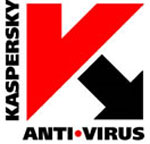MOSCOW, RUSSIA: According to Kaspersky Lab's spam report for June 2011, the volume of spam in mail traffic increased slightly compared to May and averaged 83.3%, and there are new phishing targets.
New phishing targets
The amount of phishing emails remained unchanged and accounted for 0.02% of all mail traffic. However, there was a considerable increase in the amount of phishing attacks on social networks Habbo and Facebook, increasing by 6.25% and 4.07% respectively, pushing the sites up to third and fourth places on the list of organisations attacked the most. The experts at Kaspersky Lab also predict a surge in spam linked to Google+ after recent signs that spammers have begun exploiting the growing interest in the new social network.
"We expect an increase in unsolicited emails exploiting the new Google social network. They will most likely contain both phishing links and malicious code," says Maria Namestnikova, senior spam analyst at Kaspersky Lab.
PayPal and eBay had the unenviable distinction of attracting most attention from phishers in June.
The law catches up with spammers
June saw the fight against spammers continue. Microsoft, which managed to block the Rustock botnet together with US law enforcement agencies, is keeping the pressure on cybercriminals. A recent Microsoft blog stated that the company intended to initiate a legal case against the Russian citizens suspected of creating and maintaining Rustock, even going as far to say that a criminal case could be brought in the framework of the Russian legal system.
The Russian legal theme continued with the arrest of Pavel Vrublevsky, the owner of the international online payment service ChronoPay, in June at Moscow's Sheremetyevo airport. He was charged with organising DDoS attacks against a competitor. The arrest was in no way attributed to his spamming activity - Vrublevsky is widely believed to be the founder of the large pharmaceutical affiliate program Rx-promotion.
Meanwhile, Japan was the latest world power to combat the distribution of unwanted emails at the legislative level. As of June, the creation, distribution, purchase and storage of malicious programs as well as the distribution of pornographic spam is a criminal offence in the country.
Sources of spam
India remained the most popular source of spam in June. Brazil returned to second place with an increase of 4.4% compared to May. The most noteworthy changes saw South Korea fall from second to fourth in the rating that tracks where spam originates, while Russia dropped two places to seventh.
Malware in mail traffic
There was a slight decrease in the amount of malware blocked in mail traffic in June. Malicious files were found in 3.8% of all emails, a decrease of 0.3% compared with the previous month. There were no major changes to the Top 10 countries where mail antivirus detected malware most frequently. Italy moved up from sixth to fourth place following an increase of 1.5%. Trojan-Spy.HTML.Fraud.gen still occupies first place among the Top 10 malicious programs distributed via mail traffic.
Trends in spam
Statistics show that almost a third of all English-language spam was fraudulent and was either sent with the intention of extorting money from users or contained a malicious attachment or a link to malicious code. Pharmaceutical spam was the second most popular category. Offerings of quick earnings and dubious personal loans, various goods and services along with fake designer goods were among the other most prominent categories of spam in June.
The full version of the Kaspersky Lab spam for June 2011 report is available at: http://www.securelist.com/en/analysis/204792183/Spam_report_June_2011.









